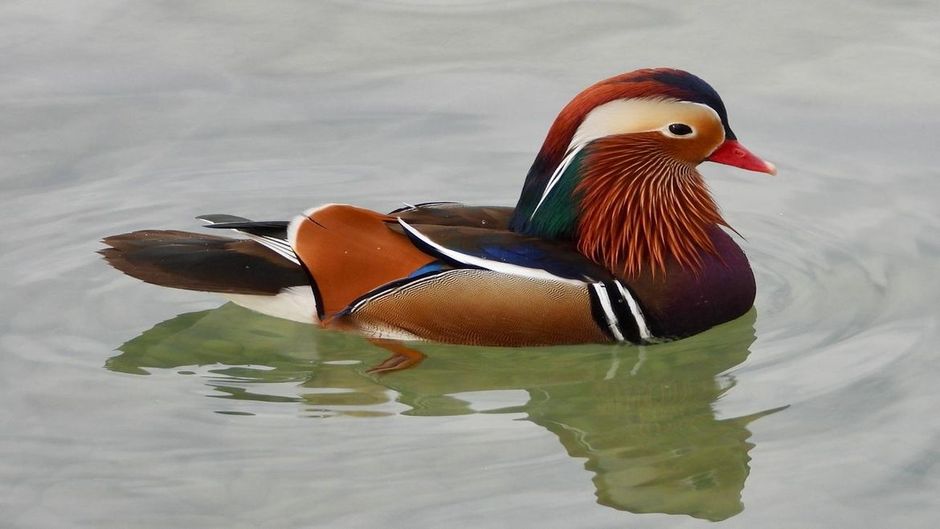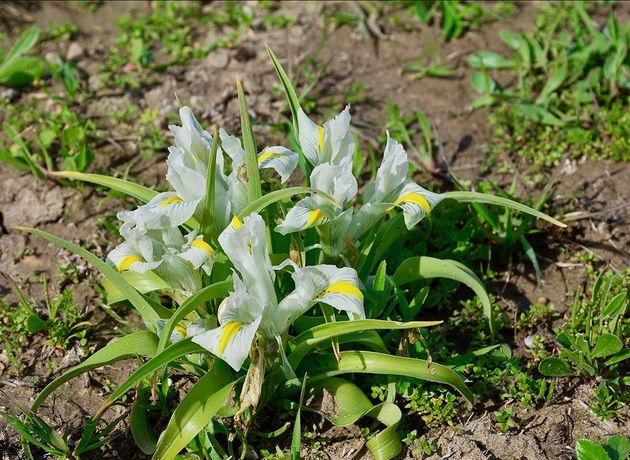It is believed to be around 18,000 different species of birds. By contrast, only 110 different species of lily have been identified.
 Photo: Antonio Cruz.
Photo: Antonio Cruz.
In his gospel, Matthew records a number of sayings by Jesus about the preoccupations that he detected in his disciples.
On the surface it would seem perfectly legitimate that those who had given up the jobs that they had earned their living by in order to follow the Master and preach the gospel should be worried about knowing how they were going to get by in the future.
However, the Lord puts their minds at rest with analogies taken from the natural world.
“Therefore I tell you, do not worry about your life, what you will eat or drink; or about your body, what you will wear. Is not life more than food, and the body more than clothes? Look at the birds of the air; they do not sow or reap or store away in barns, and yet your heavenly Father feeds them. Are you not much more valuable than they? Can any one of you by worrying add a single hour to your life? And why do you worry about clothes? See how the flowers of the field grow. They do not labour or spin. Yet I tell you that not even Solomon in all his splendour was dressed like one of these. If that is how God clothes the grass of the field, which is here today and tomorrow is thrown into the fire, will he not much more clothe you—you of little faith?” (Mt. 6:25-30).
Birds and lilies are extraordinary examples of beauty and biological diversity.
There are believed to be around 18,000 different species of birds. By contrast, only 110 different species of lily have been identified.
Despite the numerical difference, Jesus’s example is well-chosen. The enormous variety of colours, sizes and songs of birds fill the world with sublime beauty and have been an exquisite source of inspiration for romantic poetry and song.
Hence birds have perhaps been the forms of natural life most frequently imitated and represented in the fine arts, while different kinds of lilies are such splendid examples of elegance and perfection that they seem to have been the work of the most skilful artist.
The shape of the leaves and petals, along with their colours and fragrance, are so magnificent that they induce feelings of joy and peace in the human soul.

Both birds and flowers are capable of arousing in us sensorial, emotional, intellectual and even spiritual pleasure and delight.
Jesus makes reference to these forms of life with the aim of alleviating the anxiety of his disciples. Human concerns for the future, or the fear of the unknown, always originate in a lack of faith.
This was the reason why Peter sank into the waters of the sea of Galilee, why the disciples were terrified by the storm, why Peter denied the Lord three times before the cock crowed, and for so many of the mistakes we make on a daily basis.
However, Jesus Christ tells us that such anxiety in his followers is unnecessary, because just as God cares for these living things in his creation, so he will care for his disciples.
The materialist, who has no faith in God, has every reason to fear for the future, but those who are born again and have placed their confidence in the sacrifice of Christ have no need to be anxious.
Of course we must be diligent and work to provide for our material needs, but always knowing that our destiny is in the hands of our generous, loving God.

Las opiniones vertidas por nuestros colaboradores se realizan a nivel personal, pudiendo coincidir o no con la postura de la dirección de Protestante Digital.
Si quieres comentar o